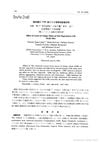In Vivo and In Vitro Evaluation of Hair Growth Potential of Hibiscus Rosa-Sinensis Linn.
September 2003
in “
Journal of Ethnopharmacology
”

TLDR Hibiscus rosa-sinensis leaf extract helps hair grow longer and faster.
In 2003, researchers found that the leaf extract of Hibiscus rosa-sinensis Linn. significantly promoted hair growth more than its flower extract. The in vivo study showed that female Wistar albino rats treated with the leaf extract had longer hair (17 mm) compared to the control (13.6 mm) and placebo (14.5 mm) after 30 days, with a higher percentage of hair follicles in the anagen phase (67%). The in vitro study supported these findings, as hair follicles treated with the leaf extract also showed significant growth over 72 hours. The study suggests that Hibiscus rosa-sinensis leaf extract could be beneficial in hair growth products, although the in vitro growth rate was slower than in vivo. Previous research on human hair follicles and other herbal extracts is acknowledged, and the support from CSIR, New Delhi, and Dr. T. Ramasami, as well as the Anna Sidha Research Institute for plant identification, is mentioned.




